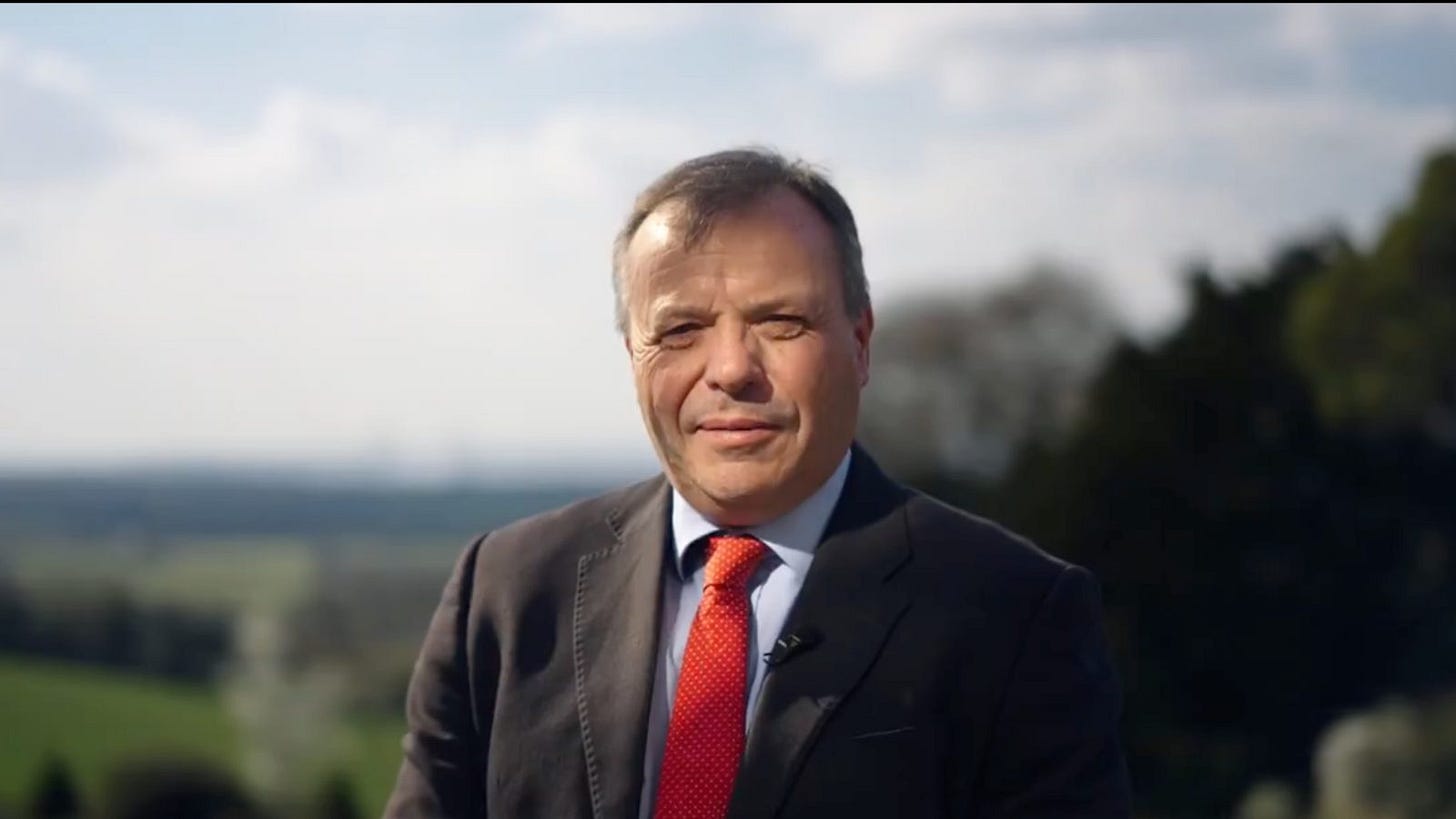Does Isabel Oakeshott still believe Arron Banks was “used by the Russians”?
Oakeshott is a Reform cheerleader but in 2018 she said the Kremlin “struck gold” with the party’s West of England mayoral candidate. The article is still online.
By Marcus Leroux
Voters go to the polls across England today, including in the race for mayor of the West of England – a combined authority that brings together council areas around Bristol.
The contest is close. Among the frontrunners is Arron Banks, the Reform Party candidate and millionaire insurance tycoon who bankrolled one of the two main Leave campaigns during the Brexit referendum. At the time, Banks was widely reported to have made the largest donation in British political history.
This week, Banks made headlines again by appearing to downplay the role he is contesting. He breezily described the West of England mayoralty as “meaningless” and joked that, if elected, he would perform the job from his “chateau 30 miles behind the lines.”
But a far more serious issue has received little attention during the campaign: Banks’s past links to Russia.
In 2018, the Sunday Times published an exclusive report that Banks was offered a business deal involving six Russian goldmines following undisclosed meetings with the Russian ambassador to Britain. There was no evidence that Banks went through with this, or indeed any business deal with the Russians or made any money from them.
The story was accompanied by a blistering op-ed about this “classic Russian fishing expedition” - written by Isobel Oakeshott.
Oakeshott’s piece explored the links between Banks and the Russian embassy in London, surmising that Banks - and his friend Andy Wigmore - had been “shamelessly used by the Russians.”
The article reported that at the time “Banks and Wigmore genuinely sympathised… with some of Putin’s political views.” It reported that Banks is married to a Russian and believed that there was an anti- Russian witch-hunt at the time.
“During the referendum campaign he and Wigmore were happy to disseminate some pro-Russian views both via Leave.EU and less openly. The Kremlin must have been delighted.”
Banks forcefully denied the allegations, telling reporters:
“I had two boozy lunches with the Russian ambassador and another cup of tea with him. Bite me. It’s a convenient political witch-hunt, both over Brexit and Trump.”
What makes these allegations more striking now is that they came from Oakeshott, who has since emerged as a high-profile supporter of Reform and partner of Richard Tice, the party’s former chair, leading benefactor, and one of just four Reform MPs.
Writing in The Sunday Times in 2018, Oakeshott stated that the Kremlin had “struck gold” in identifying Banks as someone “who might be useful to President Vladimir Putin’s geopolitical aims.”
Oakeshott based her conclusions on private documents and communications to which Banks had granted her access while she was ghostwriting his Brexit campaign memoir, The Bad Boys of Brexit.
An Interim Report on “Disinformation and ‘fake news’” published by the House of Commons’ Digital, Culture, Media and Sport Committee (‘the DCMS Committee’) in July 2019 stated that Banks met with the Russian Ambassador, for the first time, in the run up to the EU Referendum and found “it is evident that Arron Banks had many meetings with Russian officials including the Russian Ambassador, Alexander Yakovenko, between 2015 and 2017.”
Speaking to Democracy for Sale this week, Oakeshott said “this is ancient history and has been exhaustively litigated in the courts. I am fully supportive of all Reform's mayoral candidates.”
Banks, for his part, dismissed suggestions that he had been cultivated – even unwittingly – by Russian intelligence. He claimed he had briefed the US State Department at the time about his Russian contacts. There is nothing to suggest that Banks continued these contacts.
Banks, Tice, and the Reform Party did not respond to requests for comment.
Marcus Leroux is an investigative reporter at SourceMaterial.





